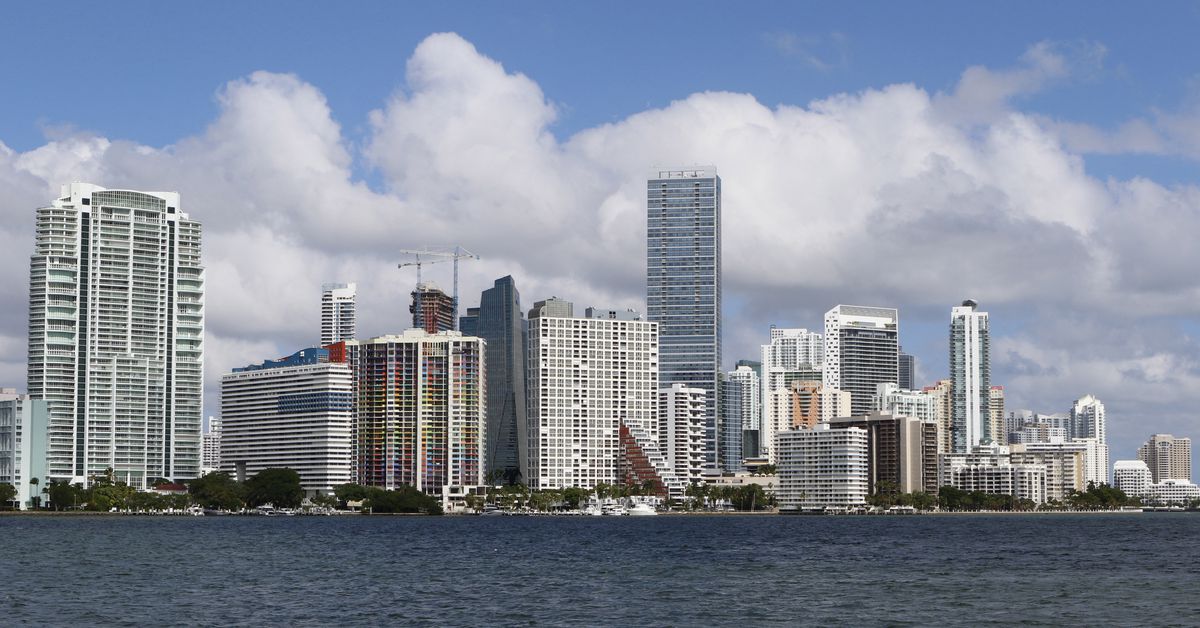The U.S. Treasury Department will soon propose a rule that would effectively end anonymous luxury-home purchases, closing a loophole that the agency says allows corrupt oligarchs, terrorists and other criminals to hide ill-gotten gains.
How about they just make it illegal for corporations to own houses?
Ding ding ding!
But think of the corporations! How will they continue to bleed the people dry with rent and artificially expensive homes??
Corporations are people too!
We’re gonna need a bigger jail.
This would be the biggest game changer for our country. Let corporations own all the apartments they want but keep them out of single family housing. There’s no reason for corporations to hoard and sit on housing, letting them sit empty and raising the prices of the occupied ones. Single family Housing should not be an investment opportunity for corporations.
Let’s bring down housing prices, and people will have a hell of a lot more money to spend on other things to keep our economy moving.
Then after that let’s do Healthcare and Education.
There’s no reason corporations should be involved in housing period. Housing is a human right and we should be treating it that way
US Healthcare Industry would like a word…
Renting is the right choice for some people. Corporations have to obey stronger laws than mom and pops and are in my experience more likely to keep the houses updated.
This is completely untrue.
The Mom and Pop owners have less resources to handle if you suddenly break your lease and leave due to crumbing conditions so it’s in their best interest to keep their properties updated.
Corporations often will ignore your complaints, and then just absorb the costs for a couple months until they can move in someone else into the same broken property. Corporations do not care when it comes to their properties, while individual owners do care because there are actual people behind them.
Also, regardless if “renting is the right choice for some people”, the housing shortage is due to corporations buying up single family homes with the express purpose of renting them, which pushes potential owners out of the market entirely.
Also too, mom and pop landlords often hold property as a means of retirement savings, so that when they go to cash out and finally retire, the house is worth something as opposed to a neglected pile. Obviously this isn’t true across all property owners that rent out, but it isn’t uncommon.
Not when they are essentially a cabal :/ https://www.propublica.org/article/yieldstar-rent-increase-realpage-rent
Just a single data point but as soon as a corporation bought my apartment complex they “attempted” to illegally increase my rent through hidden fee increases. They also “accidentally” sent me the wrong leases with the rents increased multiple times.
If I need to sue a corporation for something like this, it’s going to be a lot of time and effort for me but nothing for them so they can essentially get away with the illegality. Mom and pops it’s a lot of time and effort for both of us so it’s in both of our best interests to do things by the book.
Conservatives would never, ever let that happen. Conservatives help billionaires specifically because it hurts normal people.
The Treasury Department will soon PROPOSE a rule…
Bets on whether it goes through?
We’re going to need a few loopholes first.
Sure hope this doesn’t end up morphing into a law that fails its core objective and end up fucking over poor people somehow!
That’s the whole plan.
The long-awaited rule is expected to require that real estate professionals such as title insurers report the identities of the beneficial owners of companies buying real estate in cash to the Treasury’s Financial Crimes Enforcement Network (FinCEN).
15 years too late.
Another blow to Trump - they just keep coming.
Anyone remember when a bunch of Russians bought up a bunch of trump real estate?Always amazed how blatant this is and yet the GOP only screams for Hunter Biden dick pics.
can we do Canada next please
This will have much less of an effect on housing prices than people wish. The core problem there is lack of supply, not a handful of foreign oligarchs.
Foreign oligarchs affect supply, and I don’t think we have any idea how much. Corporate owners are probably a bigger chokepoint on supply, but domestic wealthholders are probably a big player as well. We need a variety of rules in place; enforcement of any of them will increase supply, but that mostly benefits whoever’s left in the list above. If we crack down on the biggest supply problem, the next biggest one will buy up the excess.
If we actually want private homeowners to take precedence, we have to make it extremely difficult for anyone to own multiple homes, corporation or not, wealthy or not, foreign or not.
To your point, this rule, whether it becomes an enforceable regulation or not, isn’t even targeted at increasing supply. It’s targeted at preventing money laundering.
To your point, this rule, whether it becomes an enforceable regulation or not, isn’t even targeted at increasing supply. It’s targeted at preventing money laundering.
Oh I know; that was aimed more at the people talking about corporations owning housing, as if that’s particularly relevant. I’m quite skeptical that the corporate boogeyman is really a meaningful target when it comes to housing costs though. We’ve been drastically underbuilding for decades now - with quite a lot of that directly coming from extremely onerous zoning laws. The sheer fact of the matter is that in most American cities (where people actually want to live - empty shacks in rural Nebraska are not particularly helpful here), there are far more people who want to live there than available housing, and the inevitable result of this is that the wealthiest people are those who get to live in them. This will be the case regardless of whether the housing is owned by a corporation or a mom and pop. The fundamental problem is lack of supply; anything that doesn’t address that will not meaningful reduce housing prices and is at best a band-aid.
There are 16 million vacant houses in the US. Even if half of them are unslavagebale, thats still enough to house the entire homeless population of the US ten times over. I don’t think its a supply issue.
And are those vacant houses in places where people want to live?
In NYC, for example, the vacancy rate is a bit above 2%. Vacant houses in Oklahoma have zero relevance to homeless people in NYC. It also has to be considered that a lot of vacant residences are only temporary; either caught up in legal issues or briefly empty while the owners find tenants. But again, geography is critically relevant here. Vacant properties only help if they’re in places where people actually want to live and where jobs are available. It doesn’t matter how cheap a shack in Nebraska is if there’s no job around beyond farming.
San Francisco had ~61,000 vacant homes as of late last year.
Only a third of those are in the ‘other vacant’ category that represents housing that’s not being used for any purpose. The other two-thirds are currently for rent or sale, have completed that transaction and are awaiting actual occupation, or are seasonally used.
I wouldn’t be opposed to a tax on season homeownership, but that’s only 10,000 units a city of 800,000.
The real question to ask is why the hell is it literally illegal to build anything other than a single-family home in 38% percent of the city’s land, nearly two-thirds of land zoned for residential purpose?
https://www.sfchronicle.com/sf/article/sf-map-single-family-homes-17699820.php
Sure, snapping your fingers and making those ~30,000 units come on to the market would have a small effect, but it pales in comparison to how much supply could be added if such a huge chunk of the land wasn’t legally mandated to be single-family homes.
Las Vegas, Pittsburgh, Providence, Pheonix, OKC, Memphis, St Louis, Detroit, Houston and Cleveland are all in the top 20 by percentage of vacant houses and NYC is #22. This problem is not limted to small rural areas at all. The vacancies are spread across the whole of the country.
https://anytimeestimate.com/research/most-vacant-cities-2022/











